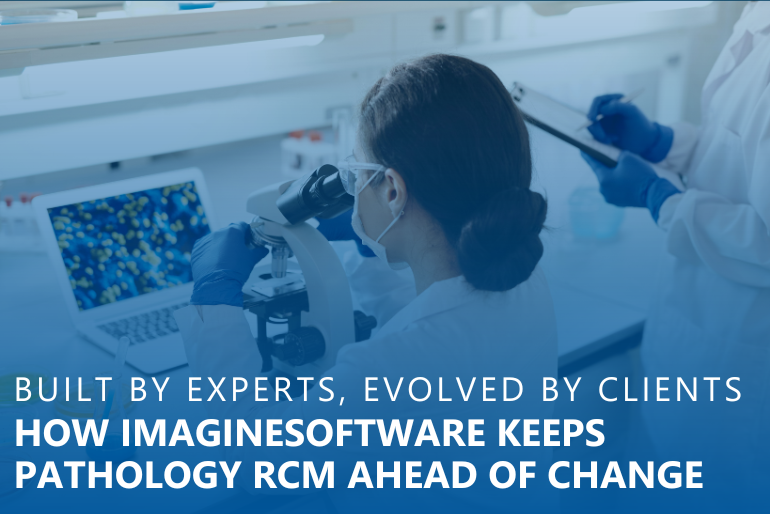In the recent Imagine webinar, “Cracking the Code: The Future of Medical Coding,” industry experts gathered to discuss the transformative impact of artificial intelligence (AI) and machine learning (ML) on medical coding. As these technologies become more prevalent, they promise to reshape not only medical coding but the entire business of healthcare, both on the clinical side and for revenue cycle management operations.
Here’s a detailed look at the key takeaways from this insightful discussion.
Introduction to the Panel
The panel comprised four seasoned professionals, including Stacie Buck, Director of Coding Compliance at Maverick Medical AI; Lindsey Reilly, Director of Solutions at CodaMetrix; Jack Neil, Pediatric Anesthesiologist and Founder of HANK.ai; and David Shelton, Chief Executive Officer at Aideo Technologies. Each panelist contributed a rich background with years of experience and distinct insights into the integration of AI into medical coding.
The State of AI in Medical Coding
Stacie opened the discussion with an overview of Maverick’s journey in autonomous medical coding. She emphasized the significant advances in AI that have allowed the company to move towards fully autonomous coding systems. According to Buck, “The potential to reach up to 85% automation in medical coding is not just a promise; it’s becoming a reality.” Lindsey also highlighted the mainstream adoption of AI, noting, “AI in medical coding is not just about improving speed but also accuracy, which can transform healthcare data management and patient care quality.” She discussed the role of AI in enhancing data quality, which could be crucial for research and population health initiatives.
Challenges and Opportunities
Jack shared his unique trajectory from software development to medicine, explaining how AI has been a game-changer in managing complex coding for anesthesiology. He pointed out that while AI brings efficiencies, it also requires a new kind of vigilance to ensure accuracy and reliability. David focused on operational improvements, suggesting that AI could help in “transitioning medical coding from a purely administrative task to a more strategic role in healthcare management,” thereby improving both operational performance and strategic decision-making within healthcare organizations.
Implementation and Integration of AI Coding Systems
The conversation also delved into the practical aspects of implementing AI in medical coding. Panelists discussed the importance of data quality, integration with existing systems, and the training required for staff. Stacie shared an optimistic view on adaptation, “Adoption rates might vary, but the efficiency gains from AI are too significant to ignore.”
Ethical Considerations, Compliance, and Beyond
Looking to the future, all panelists agreed that AI is set to revolutionize the medical coding landscape even further. David predicted a more collaborative approach between AI technologies and human coders, emphasizing the enhanced capabilities that AI brings in handling large data sets, which can improve coding accuracy and healthcare billing processes. Lindsey pointed out the potential for AI to help bridge the gap in the workforce, especially as the industry faces a shortage of skilled medical coders. “AI can not only fill this gap but also help existing staff focus on more complex cases, thereby improving job satisfaction and efficiency,” she noted. The panel also touched on the ethical implications and the need for robust compliance measures as AI technologies become more deeply integrated into healthcare. The importance of maintaining patient privacy and ensuring data security was highlighted as paramount.
Panelist insights on “Cracking the Code: The Future of Medical Coding” provided an invaluable look into how AI and ML are reshaping the field of medical coding. As these technologies continue to evolve, they offer the promise of significant improvements in efficiency, accuracy, and overall healthcare management. However, as with any transformative technology, careful implementation, ongoing training, and ethical considerations will be key to realizing their full potential. The journey of AI in medical coding is just beginning, and its path appears highly promising, suggesting a future where technology and human expertise converge more intimately to enhance healthcare outcomes.



